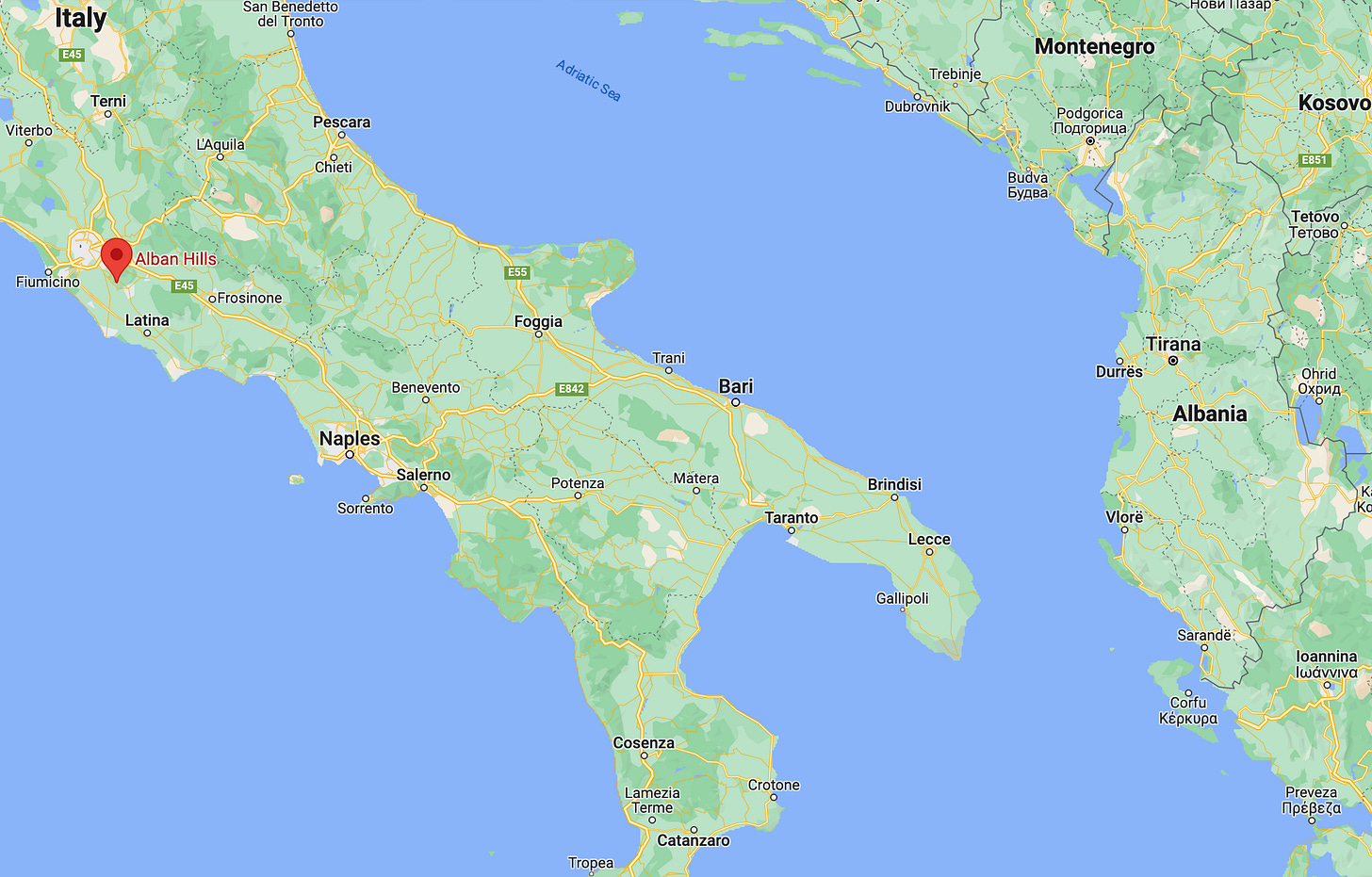Fresh Batch #49: Is Albania Etrusco-Phoenician (Ancient Italian)?
By Dylan Saccoccio

I suspect the country Albania is connected to Italy, at least through its name. Whether one came from the other or not, I am uncertain as of right now because it was part of the Roman Empire, but those who are Albanian may benefit from the possibility that they are ancient Italians on account of their history being defiled by the Greeks and Musselmans. Long before the names Italy and Albania existed, the valley of Albegna, which had an important river, was a hinterland of Vulci (Etruria). Today it is spelled Albinia, but it is phonetically identical to Albania. At the mouth of the Albegna is Mount Argenarius, now Argentario. I wonder if it was named as such after an abundance of silver (argentum) ore found there.


Grant wrote (The Etruscans, p. 97), “On the shores of the Alban Lake, beside the mountain, stood the village or villages of Alba Longa (Castelgandolfo). It was famous in Virgil’s legends as the parent city of Rome; whether there is truth in this tale is uncertain. Alba Longa was in a position to control one of the main thoroughfares to south Italy, the later Via Appia, and it controlled also a regional sanctuary of the sky divinity Jupiter on the Alban Mount, so that in the tenth century BC it was already the centre of a loosely knit association of Latin villages. The names of certain legendary Alban kings are etymologically Etruscan, notably Capys, reminiscent of Etruscan Capua, and Tarchetius, who was said to have consulted an oracle in Etruria.
“There was also a story that an Etruscan King Viba (or Vibe)—the name is related to that of the Vulcentine house of the Vibennas—had come from Veii to visit his counterpart Amulius at Alba Longa. So Alba Longa had Etruscan contacts, and may well have become partly Etruscanized.”

It is acknowledged that the Latin alphabet was derived from the Etruscans, but their language is not, and to reconcile this, one might claim that Rome is a dual culture in which part of the population spoke Latin and the other part spoke Etruscan. However, I suspect this is not the case. The following image is an Etruscan bust (clearly not African or Asian) from Cahn’s’ Quarterly:
I wrote in The Holy Sailors (click the image), “The Phoenician Alpin is a high Mountain and Alben is white. I imagine this is where the word alpine originated.”
The coast lines were allegedly much different in the ancient world, but one can see how close Albania is to Italy, the first great colony of the Phoenicians.
The pattern I keep coming across is the inability of the status quo to reconcile the pervasiveness of Etruscan culture in places they thought were Roman and Greek. In my opinion, the difficulty arises from them not conceding certain things that are exposed in the Spirit Whirled series.
Become a member to access the rest of this article.
Keep reading with a 7-day free trial
Subscribe to Ancient History, Mythology, & Epic Fantasy to keep reading this post and get 7 days of free access to the full post archives.






